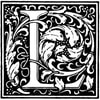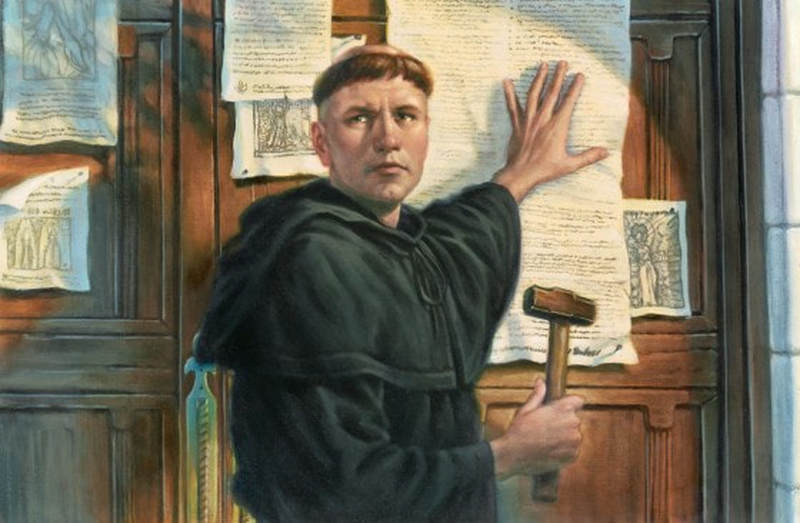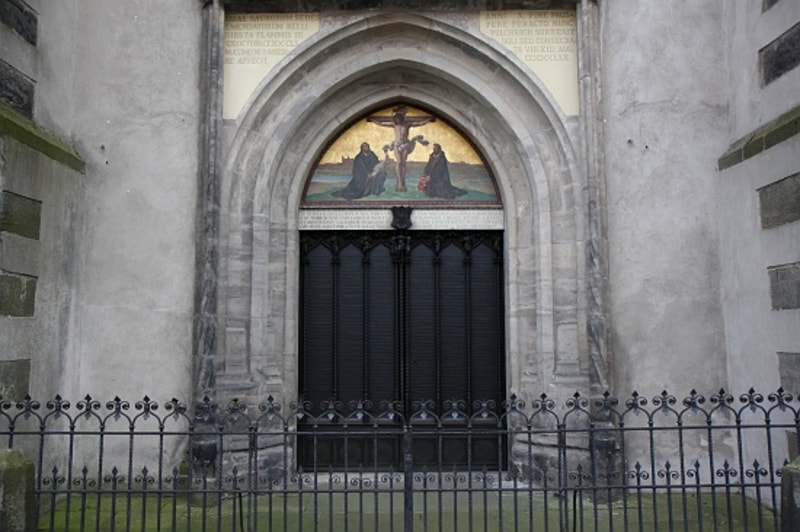Martin Luther
Response to Luther's 95 Theses

uther sent this Theses to others in high places, explaining to them how little foundation there was for the doctrine of indulgences. Most letters followed with no response, and the little response he did get, as with the Bishop of Brandenbourg, he replied that he was attacking the power of the Church, in which he would involve himself in great trouble and vexation, this was beyond his strength, and advised him to keep quiet. The letter, in general was not harsh. At least not as severe as some of the later letters Luther would publish. At this time, Luther still had hope for the Catholic Church, and an immense respect for the Pope. His 95 Theses reveals this. It was not an attack against the Catholic Church, but an eager plea to reform to the Truth.
His Theses spread quickly through Germany, and within a month, they were at the door steps of Rome. They had spread to the cells of the monks, and to the studies of the learned, including Erasmus, who delighted in reading his Theses and said, “The world was weary of a doctrine containing so many childish fables, and was thirsting for that living water, pure and hidden, which issues from the springs of the evangelists and the apostles. The genius of Luther was fitted to accomplish these things, and his zeal must have animated him to the noble enterprise.” The Theses reached the other great scholar, Johann Reuchlin, who had been in constant battle with the monks. He said, “Thanks be to God, now they have found a man who will give them so much to do, that they will be obliged to let me end my old age in peace.” His Theses traveled to the palaces of princes and kings, in which The Emperor Maximilian, predecessor of Charles V, also read and admired the theses of the monk of Wittemberg. He perceived his talents, and foresaw that this obscure Augustin might, indeed, become a powerful ally of Germany in her struggle with Rome. Accordingly, he instructed his envoy to say to the Elector of Saxony, “Take good care of the monk Luther, for the time may come when we shall have need of him.”

